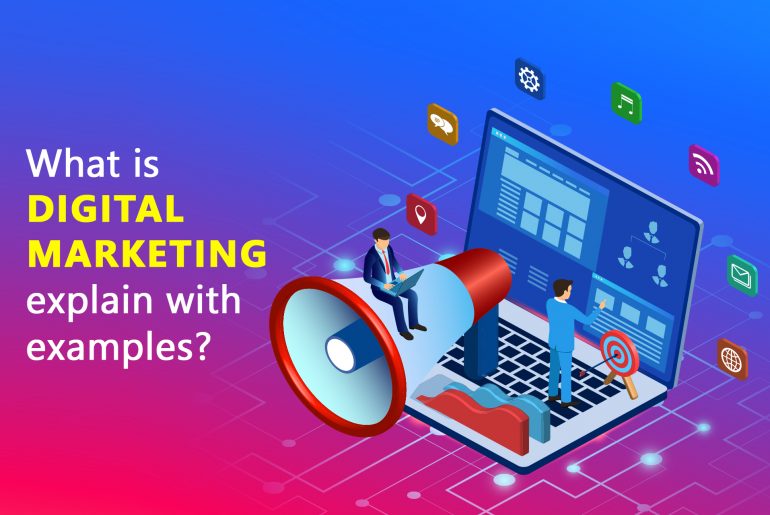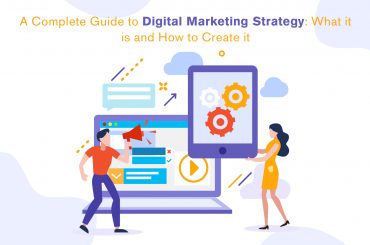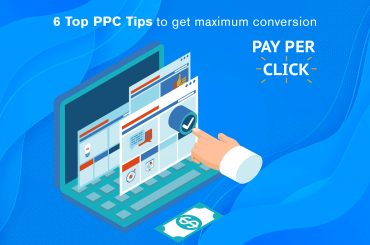In the last few years, digital marketing has created quite an uproar. At present, this marketing variation has played a vital role in promoting an organization. Digital marketing offers to reach out to a specific and targeted audience. This medium allows companies or organizations to interact directly with people, and businesses. Basically, the users who can be interested in their products or solutions.
Digital marketing is an ever-evolving field, and it can be hard to keep up with the latest trends and strategies. With the right digital marketing services, however, you can get your business the online visibility it needs to succeed.
In this comprehensive guide, we’ll discuss the different types of digital marketing services, the benefits they can provide, and how you can use them to benefit your business. Whether you’re just getting started with digital marketing or you’re looking to expand your current strategy, this guide will help you find the right services to meet your goals.
What is Digital Marketing?
Digital marketing comprises a wide range of strategies to reach out to the maximum number of people, businesses, or consumers online. This online internet marketing service actually allows new businesses or organizations to establish themselves as a brand.
Precisely, digital marketing means distributing content through digital platforms. These digital media channels include websites, landing pages, social media, emails, etc. Things do not end only with the mere distribution. It also includes a variety of strategies through paid and owned digital channels. It also covers the methodologies such as SEO, SEM, pay-per-click (PPC) advertising, content sharing, email, and more.
Examples of Digital Marketing Assets
Digital marketing assets typically are any tool that you can use online, including things such as:
- Social Media Profiles
- Company Website
- Email Themes
- Images, Audio, and Video Content
- Blog Posts, Articles, and eBooks
- Reviews, Customer Testimonials, and Case Studies
- Branded Logos or Icons
What is the Importance of Digital Marketing?
Digital marketing is an essential component of any modern business. It is the process of using digital channels such as search engines, social media, email, and other websites to promote products and services. By using digital marketing, companies are able to reach a wider audience, engage potential customers more effectively, and improve their overall brand presence.
The importance of digital marketing lies in its ability to provide direct access to potential customers. With the right tactics, businesses can gain insights into the behavior of their target market and create content that resonates with them. This type of marketing also allows companies to track their progress and measure the success of their campaigns.
Digital marketing is becoming increasingly important due to the rapid advances in technology. Today, people use the internet for virtually everything from shopping to researching products and services. With the right strategy, businesses can take advantage of this trend and reach a wide range of consumers. By leveraging the power of digital channels, businesses can also build a positive reputation, increase their sales, and engage with their customers on a personal level.
Types of Digital Marketing Channels with Examples
You can get a brief glimpse of the entire digital marketing world. Here are a few most common examples of digital marketing channels:
- Search Engine Optimization (SEO)
- Pay-Per-Click (PPC)
- Social Media
- Social Media Optimization (SMO)
- Social Media Marketing (SMM)
- Email Marketing
- Video Marketing
- Text Messages (SMS and MMS)
- Content Marketing
- Affiliate Marketing
- Mobile Marketing
- Marketing Automation Platforms
- Marketing Analytics Platforms
Here We are sharing brief details to define the most widely used digital marketing channels:
1. Search Engine Optimization (SEO)
Good search engine optimization (SEO) offers to optimize the content on various sections of a website such as landing pages, blogs, etc. Thus, the visibility of this content improves and drives traffic to your content with better search results.
SEO heavily depends on keywords and page optimization. Using long-tail keywords (3+ word phrases) throughout the web content improves SEO.
2. Pay-Per-Click (PPC)
Pay-per-click (PPC) advertising involves the payment for each click on a specific link. Today, several search engines and most social media sites offer PPC opportunities. These ads target your exclusive customers’ and interested customers’ feeds.
Search engine marketing (SEM) is a version of PPC ads that involves the payment to a search engine to show the link of your website or page whenever visitors search for specific keywords.
3. Social Media Optimization (SMO)
Social media optimization can be challenging at times since it requires consistent content creation and sharing online on a network of social media. With time, this has become quite important since it affects your search engine result space. Earlier, it was easy to distinguish between search engine optimization and social media optimization, but today it doesn’t seem fit here. These two go hand in hand now, complementing each other’s efforts in producing the best results overall.
4. Social Media Marketing (SMM)
Over the last two decades, social media marketing has occupied a special place. Thus, it has become a potential way to reach out to targeted audiences. The social media platforms like Facebook, Twitter, and Instagram are the most favorable mediums worldwide. These platforms interact with consumers directly. There Linkedin interacts with businesses directly encouraging B2B businesses.
5. Email Marketing
This channel of digital marketing is one of the most impactful and oldest formats. This is the most favored method for B2B and B2C marketers.
To use email marketing, you just need to collect customer data from various places. Thereafter, you need to understand your preferences for potential customers. Thereafter, all you need is to add them to your email list(s).
What Does Email Will Contain?
Email content must include the following information – Products and services, Latest update, News about your company, Events, Invitations, Personalized offers, Customer success stories, Case studies, and Technical or business briefs.
6. Video Marketing
At present videos are the most effective method to convey the message. They can be used for both researches as well as fun. Today, both B2B buyers and B2C consumers are relying on videos to make buying decisions.
Advantages of Video Marketing
It is quite helpful in following
- Building brand awareness,
- boosts digital traffic,
- and increases conversion rates.
7. Text Messages (SMS and MMS)
Similar to email marketing, text messages are a very effective way to connect with your customers. Where SMS involves simple and precise texts but MMS involves videos and gifs.
8. Content Marketing
Content marketing is a form of digital marketing that involves creating and distributing content such as videos, blogs, and images to attract new customers and retain existing ones. This content could be informative, entertaining, or educational in nature and should be tailored to the specific interests of your target audience.
Examples of content marketing include writing blog posts, email copy, landing pages, ebooks, whitepapers, infographics, banners, creating video tutorials, newsletters, press releases, articles, digital postcards, and curating helpful resources on a website.
9. Affiliate Marketing
This is another most effective digital marketing strategy. It involves the promotion of your products through bloggers and social media influencers. They are known as affiliate marketers, as they promote your products and services on their blogs and social media accounts.
Through this affiliate marketers earn a commission for promoting. The more visitors and customers they involve, the more money they get to earn.
10. Influencer Marketing
Influencer marketing involves connecting and engaging with influencers in your industry. This could be done by creating content with them or sponsoring them to promote your brand or product. Influencers could include celebrities, bloggers, YouTube personalities, and other public figures who have a strong influence on their audiences.
Examples of influencer marketing include sponsored posts on social media, product reviews on YouTube channels, or even product placements in movies or shows.
11. Mobile Marketing
Mobile marketing involves optimizing your website and content for mobile devices and using targeted messages to reach people while they are on-the-go. This could involve developing mobile-friendly ads, sending text messages to potential customers, or creating apps to make it easier for customers to engage with your business.
Examples of mobile marketing include creating mobile-responsive websites, running mobile campaigns on social media, or creating branded apps for customers to use.
12. Marketing Automation Platforms
Marketing automation platforms help businesses automate tedious processes like customer segmentation, email campaigns, and lead scoring. This allows businesses to save time and resources by automating mundane tasks and focusing on more important aspects of their digital marketing strategies.
Examples of marketing automation platforms include HubSpot, Pardot, and Marketo.
13. Marketing Analytics Platforms
Marketing analytics platforms enable businesses to measure the performance of their digital marketing efforts and optimize them accordingly. These platforms can provide insights into customer behavior, website traffic, campaign performance, and more.
Examples of marketing analytics platforms include Google Analytics, Adobe Analytics, and Webtrends.
What Are the Benefits of Digital Marketing Platforms to Businesses?
Businesses today rely heavily on digital marketing to get their message out to the world and reach potential customers. Digital marketing platforms are the go-to tools for businesses looking to maximize their online presence. From website design to pay-per-click (PPC) campaigns, these platforms offer various services that can help companies to reach their goals.
One of the key benefits of digital marketing platforms is the ability to track and allocate spend. With an easy-to-use dashboard, businesses can track the performance of their campaigns and identify areas where they need to invest more resources. This allows them to get the most out of their budget while also ensuring they are targeting the right audience.
Another advantage of using digital marketing platforms is the ability to create suitable ads to drive conversions. By tracking user behavior, demographics, and location data, businesses can create highly targeted campaigns that reach the right people and increase their chances of conversions. With suitable ads, companies can quickly see a return on investment.
Finally, digital marketing platforms enable businesses to correlate qualitative and quantitative results. Through insights gathered from both qualitative and quantitative data, companies can gain a better understanding of their customers, allowing them to make informed decisions about how to move forward with their marketing strategies. This information allows businesses to develop targeted campaigns and measure their success more accurately.
By leveraging the power of digital marketing platforms, businesses can maximize their online presence and ensure they’re reaching the right people with the right message. From tracking and allocating spend to creating ads that drive conversions and correlating qualitative and quantitative results, digital marketing platforms offer numerous benefits to businesses looking to grow their customer base.
How to Choose the Best Digital Marketing Platform?
When looking to choose the best digital marketing platform, there are a few key factors to consider.
- Clean Data: The first factor to look for when choosing a digital marketing platform is its ability to provide clean data. Clean data means that the platform should be able to accurately track and measure conversions and other performance metrics associated with your campaigns. This is especially important for businesses that need to make decisions based on their data. A good platform should have built-in data validation and reporting capabilities.
- Relationships with Third Parties: Another important factor is the platform’s ability to maintain relationships with third parties such as media buying firms, web analytics companies, and search engine optimization (SEO) services. By working closely with these partners, you can ensure that your campaigns are optimized for maximum effectiveness.
- The Ability to Look at Campaigns Holistically: To maximize the success of your digital marketing efforts, it is essential to be able to view your campaigns holistically. This means being able to see how all of your efforts interact with each other and identifying areas where improvements can be made. A good platform should allow you to create a “big picture” view of your campaigns, as well as identify opportunities for optimization.
- The Marketing Attribution Model: Finally, you want to look for a platform that uses a marketing attribution model. This model assigns values to different elements of a campaign based on its impact on overall performance. This allows you to better understand which elements are performing better than others and adjust your strategy accordingly.
By taking all of these factors into consideration, you can ensure that you select the best digital marketing platform for your business. Doing so will help you maximize the return on investment for your campaigns and better reach your desired goals.
Things You Need Before Starting Your Digital Marketing Campaign
Before you get started with your digital marketing campaign, it’s important to take a few steps to ensure you have everything you need to be successful. Here are some of the things you should consider when preparing for your digital marketing campaign.
- Know Your Audience: It is essential to understand who your target audience is in order to create a successful digital marketing campaign. Understanding your audience will help you determine the right channels to reach them and what messages to use that will resonate with them. Consider demographic information such as age, gender, location, and interests, as well as psychographic information such as values and attitudes.
- Use Trial-and-Error Method: Digital marketing can be an expensive endeavor, so it’s important to experiment and try different strategies to see what works best for your business. Don’t be afraid to test different channels, messaging, and offers to see what resonates most with your audience. Just be sure to track your results so you know which strategies are most effective.
- Keep Track of Data: When you’re running a digital marketing campaign, it’s essential to track data in order to measure its success. This includes monitoring website visits, clicks, conversions, and sales. You should also keep track of how people are engaging with your content, such as likes, shares, comments, and retweets. Tracking this data will help you optimize your campaigns and ensure you’re reaching the right people with the right message.
Conclusion
At present, the traditional methodology has taken a backseat. Still, the technology has made it possible to drive more targeted media buys across new TV platforms such as Netflix, Hulu, YouTube, and others.
Digital marketers also provide ads on third-party sites to reach a better audience. These ads can be visible as banners, video ads, sidebar ads, etc. They all are linked to your websites or landing pages.
These are the popular channels to promote your products on online platforms. You can connect with several marketers from digital marketing agencies or freelancers to learn more about digital marketing.
Frequently Asked Questions
1. Why is digital marketing effective?
Digital marketing is effective because it offers the ability to target a specific audience, provides access to a large pool of potential customers, and is cost-effective compared to traditional marketing methods. Digital marketing channels such as search engine optimization (SEO), social media, email marketing, content marketing, and mobile advertising are all effective strategies for reaching and engaging an audience.
2. Which is the best digital marketing?
The best digital marketing strategy will depend on your business goals, target audience, budget, and resources. It is important to evaluate your current strategy and determine which channels will be most effective for your business. In general, a combination of SEO, social media, content marketing, email marketing, and mobile advertising is often the most effective way to reach your target audience.





